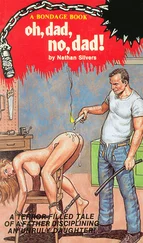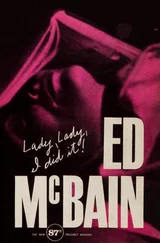To her parents, she continued to look... well... there was no other word for how they thought she looked: dirty. On the outside , at least. She rarely combed her hair, and even after she’d showered it seemed a tangle of knots, a mare’s nest sitting on top of her narrow face, and framing it in tatters. She wore no makeup except the kohl she’d brought home from India, and this she applied in heavy black outline around each eye for a rather spooky effect. Her tent dresses were never pressed, her jeans were worn straight from the dryer, her feet were invariably bare and invariably dirty. But inside , she claimed to be immaculate, and often went into rapturous explanations of her sanitary routines, reminding them of the letter that had detailed all the symptoms of her dysentery.
“When I get up each morning,” she said, “I go to the toilet first thing. That’s something I learned from this girl I met in India after I split with Paul, Marjorie Kildare, who’s buying and shipping the stuff I’ll be selling here. You’ve got to get all the shit and piss out of your system first thing in the morning, otherwise it remains in your body poisoning you. There’s no sense avoiding meat or other unclean foods, if you keep all the shit and piss inside, do you see? So what you do, you empty your bladder and move your bowels first thing in the morning, to get all the poisons out of your system. Then you shower to wash off any residue that’s clinging to your anus or your vagina, and then you’re clean both inside and out.”
(So how come you get crabs? Jamie wondered.)
These conversations usually took place at dinner, the one meal at which Lissie joined them with any regularity. She invariably slept till noon, sometimes later, on occasion not rising till two or three in the afternoon. She would eat a “breakfast” of raisins and skim milk, and then would walk out in her robe, barefooted, to check the mailbox, eagerly awaiting word from her partner in Bombay, who, Jamie was sure, had absconded with the money left in her trust. He knew better than to mention such a thought to Lissie, nor did he or Connie ever comment on the lingering smell of stale marijuana in her room. Her friends came and went, most of them girlfriends, every now and then a boy the Crofts knew. In a rare intimacy one night at the dinner table, Lissie told them that Sally Landers was “doing speed.” When Jamie said he was going to the phone right that minute to call her parents, Lissie warned him that she’d never tell him anything again as long as she lived if he did such a terrible thing.
When Lissie received the long-awaited letter from Marjorie Kildare, listing the various items of merchandise she’d purchased with their modest, joint hundred-dollar investment, and advising her that the shipments, in separate parcels, would be going out of Bombay that same day, she was ecstatic. She immediately got on the phone to Rusty Klein, who was home on a long weekend from Bennington, and told her the good news. “Rusty’s very depressed these days,” she later told her parents, but again did not amplify. Her parents were by then used to these mysterious allusions, the letter-from-camp syndrome that Lissie seemed to have adopted as part of her normal life-style.
In the beginning, they used to question her further, hoping for elucidation, but she’d only go into rather long and (they suspected) deliberately convoluted stories that obfuscated rather than illuminated. Eventually, they’d given up. Similarly, Connie — toward the middle of the month — gave up preparing special salads or cooking additional vegetable dishes for Lissie. She told her flatly, and not without sympathy for her daughter’s dietary preferences, that she worked too hard every day of the week to have to come home and worry about what Lissie would be eating that was different from what the rest of the family was eating. This was not a restaurant she was running here, and if Lissie wanted to maintain a diet that was not necessitated by any physical ailment, then she herself would have to—
“I do consider it a physical need,” Lissie said.
“I said physical ailment .”
“Eating meat would make me physically ill,” Lissie said.
“I’m not suggesting that you eat meat.”
“You’re telling me you won’t cook for me if I insist on eating only vegetables.”
“I’ll cook only the vegetables I would normally cook with each meal,” Connie said.
“Fine, that’ll be a fucking starvation diet,” Lissie said.
“Whatever other vegetables you want, you can cook for yourself,” Connie said. “And watch your language.”
The embarrassment lingered like a fever.
It was an embarrassment lessened in intensity for Jamie only because Lissie was a girl. Even if she refused to put on a proper dress and stockings and shoes when they took her out to dinner, even if her hair looked dirty and uncombed most of the time, even if her ridiculous eye makeup made her look like a braless bride of Frankenstein, there was still something less embarrassing about her and all the other girls than there was about the boys.
One afternoon, alone with Joanna in her apartment, he tried to explore this with her. She had, at first, and in direct contradiction to Jamie’s unbridled joy, been exceedingly wary about Lissie’s homecoming, suspecting at once that her reappearance in his life might cause changes Joanna was not prepared to accept yet another time. He had stilled her fears. He was here to stay, he’d told her, a declaration she’d found a trifle overstated since the length of his stay each week varied from between two to three hours, after which he caught the train home to his loving wife and resurrected daughter. Count your blessings, Joanna had cautioned herself. He loves you, he keeps saying he loves you, don’t rock the boat. But he rarely discussed his daughter with her — seeming in his mind to have created dichotomous territories, one exclusively Connie’s and Lissie’s, the other Joanna’s — and she was surprised when he began talking about her that afternoon.
“Maybe I’m kidding myself,” he said. “I am, after all, the father of a daughter, and maybe I want to believe she doesn’t look as ridiculous as the boys do. But I think it’s true, Joanna. And I think it’s because women have always been the ones who wore the feathers and paints.”
“Tell that to Geronimo,” Joanna said.
“Well, isn’t it true that women are the style-conscious ones?”
“So?”
“And that they’ll wear outlandish clothes...”
“Thanks.”
“... until a style catches on and becomes a fashion?”
“So?”
“So if Lissie chooses to run around looking like a freak... that’s what she’s begun calling herself, you know. No more hippie. Now it’s freak.”
“I hate that word,” Joanna said.
“Freak,” Jamie said, and sighed.
When Lissie’s merchandise arrived from India, she spread it on the living room Bokhara, squatting cross-legged behind it like a merchant realized, the Oriental rug lending credence to her trade, holding up each garment and artifact, slipping bangles over her wrists, fastening earrings to her ears, babbling all the while in a rapid monologue that sounded almost Persian, words tripping over words as she excitedly described how she would begin selling all of this stuff as soon as she’d inventoried it and figured out a proper markup, popping a little ivory pipe into her mouth, grinning around the stem and puffing imaginary smoke like an imaginary pasha. Two days later, a letter arrived from Brenner University, surprising both Jamie and Connie, but not Lissie, for she was the one who’d written asking for information about reenrolling in the fall. She had been home for almost two full months by then, and Jamie was beginning to believe that everything was going to be all right.
Читать дальше












